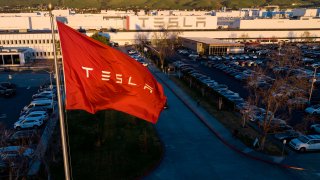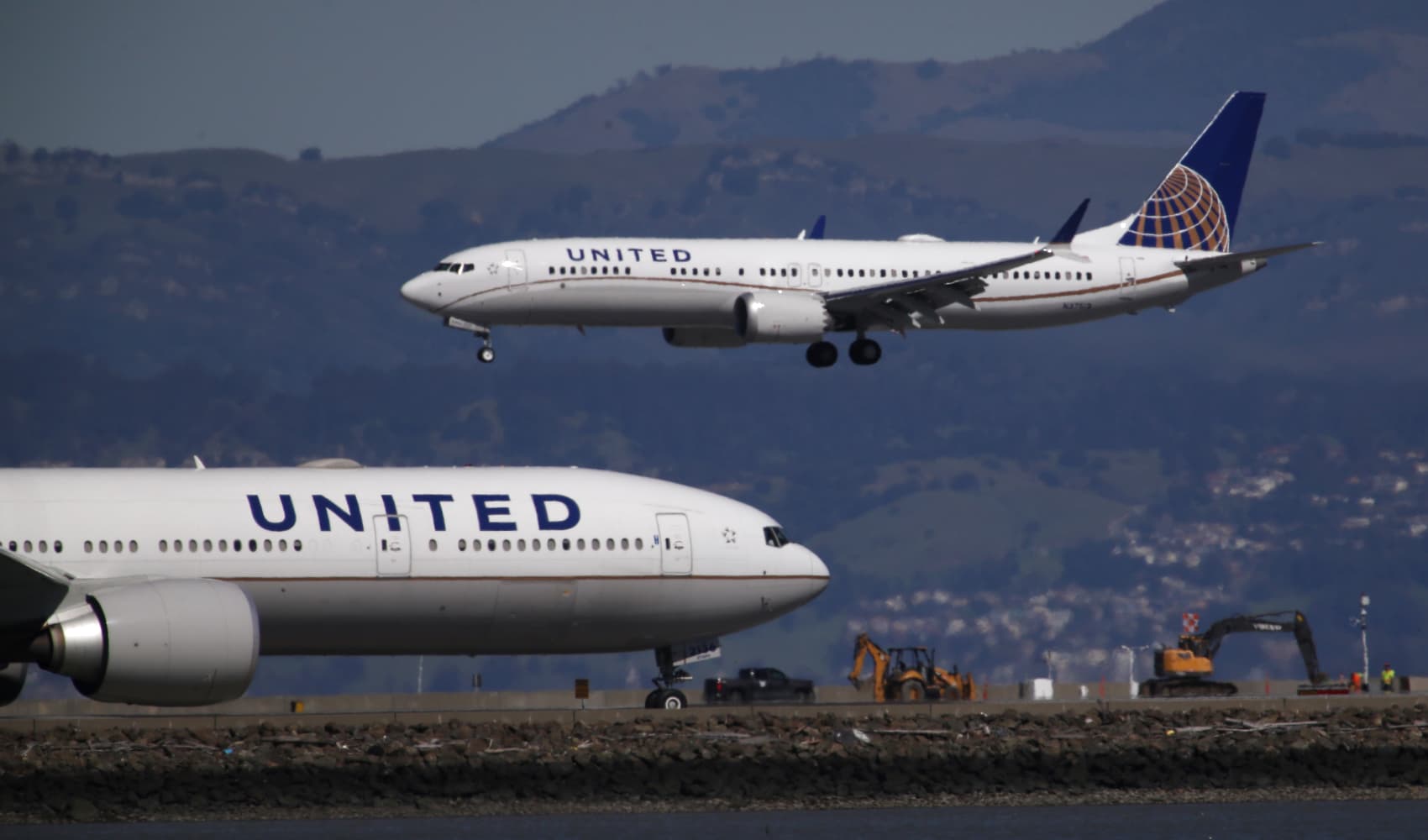
- Invoices and other documents show Tesla paid MWW PR to monitor a Tesla employee Facebook group, and to conduct research specifically on organizers on social media in 2017 and 2018.
- Two things that MWW PR watched closely for Tesla were discussions on social networks alleging unfair labor practices at Tesla, and about a sexual harassment lawsuit, according to the documents describing their work.
- Current and former Tesla employees told CNBC they believe the company still watches workers on social media, and shared copies of the company's current communications policy.
In 2017 and 2018, as some workers sought to form a union at the Tesla factory in Fremont, California, Elon Musk's electric vehicle company was paying a consultancy, MWW PR, to monitor employees in a Facebook group and more broadly on social media, according to invoices and other documents reviewed by CNBC.
Two things that MWW PR watched closely were discussions alleging unfair labor practices at Tesla, and about a sexual harassment lawsuit, according to the documents describing their work.
Feeling out of the loop? We'll catch you up on the Chicago news you need to know. Sign up for the weekly Chicago Catch-Up newsletter here.
While the records confirming Tesla's surveillance of employees online are years old, they hold new relevance for observers seeking greater understanding of CEO Elon Musk's priorities where social media is concerned.
Musk recently struck a $44 billion agreement to buy Twitter, the social network he has relied on for years to promote his companies and mock or criticize perceived enemies, including short-sellers, whistleblowers, the UAW, journalists, and elected officials in the Democratic party. He is expected to become interim CEO of Twitter if the deal is completed.
The records show that Tesla paid MWW PR to monitor a Tesla employee Facebook group, monitor Facebook more broadly for commentary on organizing efforts, and to conduct research specifically on organizers, going on to develop labor communication plans, media lists, and pitches based on their reconnaissance.
Money Report
A global communications director for Tesla during the time, Dave Arnold, had ties to the PR and consulting firm the automaker hired to do this work. He was employed at MWW for about 4 years from 2011 through 2015 as a vice president, following a stint as as a communications director for former Rep. Anthony Weiner (D-N.Y.) according to a press release from MWW announcing his hire.
Tesla and Elon Musk have clashed with union proponents for years. In 2017, Tesla fired a union activist named Richard Ortiz and in 2018, Musk tweeted a comment found to have violated federal labor laws. The National Labor Relations Board ordered Tesla to reinstate Ortiz and to have Musk delete his tweet, which they said threatened workers' compensation. Tesla has appealed the administrative court's ruling and his tweet remains.
Musk has criticized many Democratic elected officials including President Joe Biden for their pro-union views. He recently said he plans to vote Republican in upcoming elections because "the Democratic Party is overly controlled by the unions" and class-action lawyers. Tesla's factories in Texas and California have never held union elections.
A spokesperson for MWW PR told CNBC:
"MWW consulted with Tesla in 2017-2018 on a broad employee communications engagement during a period of rapid growth at the Company. It is a common practice to review media coverage and public social conversation about a company to gain insights into issues and perceptions of stakeholders about the brand."
Arnold and Tesla did not respond to requests for comment.
'Social listening' vs surveillance
There are justifiable reasons why companies keep an eye on what their employees post publicly online, according to John Villasenor, a professor at UCLA and fellow at Brookings Institute whose research focuses on the impact of technology on society, law and public policy.
He said, "Suppose you have an employee going online and issuing all sorts of racist statements publicly. You could argue it would be in a company's interest to know that. If a person is saying things that directly implicate their fitness to be an employee, you would want to know that and you cannot just say it's none of our business."
Crucially, Villasenor noted, there are also bright ethical lines that should not be crossed when it comes to accessing employees' social media profiles and posts.
Jennifer M. Grygiel, a Syracuse University associate professor whose research focuses on propaganda and social media, told CNBC companies should refrain from any action that interferes with worker's rights, specifically their rights to discuss, form or join a union.
"Any organization can engage in 'social listening,' using publicly available social media data to gain insights for product development, or to understand voters, public and employee sentiment and more," Grygiel said. "But there are laws in the US that protect the rights of people to organize. If you're a PR firm, or a manager who has to infiltrate a semi-private group? That's dishonest. And I doubt Tesla would send a PR firm to figure out how to support workers involved in organizing."
Three people who were Tesla employees in Fremont in 2018 told CNBC they were warned by colleagues not to link to their bosses on social networks, nor to join Tesla employee groups on social media, unless they knew every single person in the group, including the administrator running it, and had a say over who would be invited to join. Two others who work for the company today said employees assume that Tesla keeps a close watch on their social media posts.
Internally, employees chat in a number of groups, including on Mattermost (an open-source chat product) and Teams (the video conferencing platform from Microsoft) but Tesla does not use Facebook's Workplace and did not in 2018, these people said.
Tesla's current communications policy, obtained by CNBC, says that managers should not access subordinates' pages on social networks unless there's a distinct business reason why they must do so. The policy also discourages employees from speaking out online about work issues, and cautions:
"You are more likely to resolve concerns about work by speaking directly with your co-workers, supervisor or other management personnel, or by contacting your Human Resources Partner or accessing Tesla's Integrity Line, than by posting concerns on the Internet."
Current and former employees who spoke with CNBC about Tesla's use of social networks asked to remain un-named, as they had not been authorized to speak to press or had signed non-disclosure agreements barring them from making critical public statements about Tesla.






